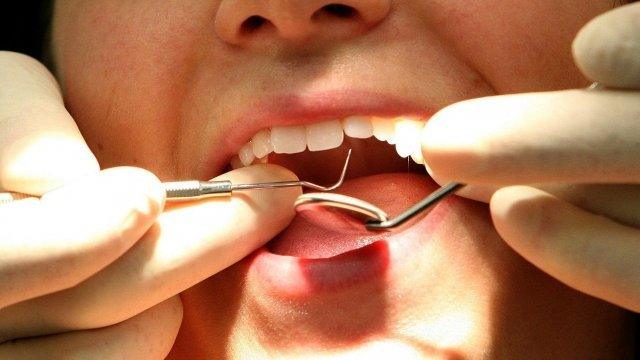MPs 'staggered' by NHS fines 'complacency'
- Published
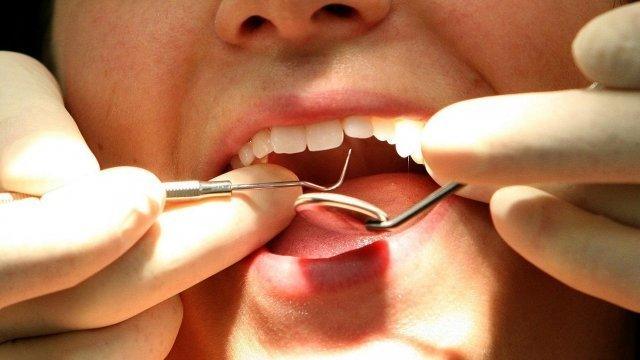
MPs on the public spending watchdog committee attacked the "breathtaking complacency" of a system of healthcare fines in England in which 1.7 million penalties were overturned as incorrect.
The Public Accounts Committee was inquiring into a National Audit Office report showing confusion and errors in fines over eligibility for free dental treatment and prescription charges.
Sir Chris Wormald, permanent secretary at the Department of Health, accepted that the system was "problematic" and promised significant changes.
Before fines are issued, he said there would be a new stage in which people could put forward evidence showing they were entitled to free treatment.
'Hitting innocent patients'
"It gives people a clear opportunity to say that we've got it wrong before we get into the penalty charge notice process," Sir Chris told MPs.
The British Dental Association described this as a "huge victory for patients".
The cross-party committee repeatedly challenged the credibility of a system which has been accused of unfairly charging hundreds of thousands of people for fraudulent use of health services.
The National Audit Office had shown that since 2014 almost a third of the fines issued, worth £188m, were subsequently withdrawn.
A series of BBC stories had highlighted concerns from families who believed they had been unfairly hit by penalty charges after getting dental treatment.
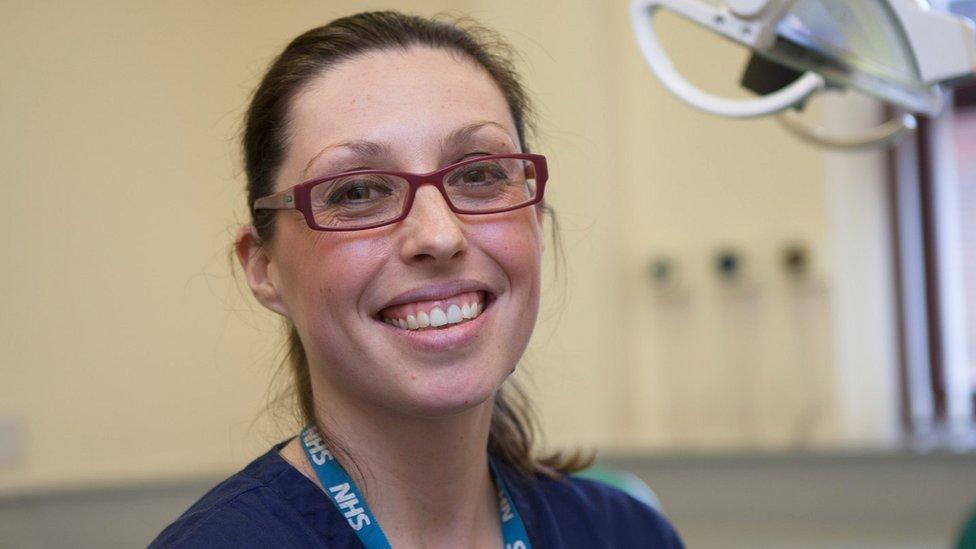
Dentist Charlotte Waite has raised concerns about vulnerable people being wrongly fined
Charlotte Waite of the British Dental Association said many of those getting caught up in the penalty fine process were "vulnerable" people, who might be brought to the dentist by carers or relatives.
This might include people with dementia, learning difficulties or the very elderly, who either might have ticked the wrong exemption box or who were not able to supply the required information.
"We're very concerned about this hitting innocent patients," she told MPs.
Even if the fines - often of about £100 - were levied in error, Ms Waite said many people might pay up.
'Putting the frighteners on people'
"Appealing is stressful and difficult. How many people don't appeal? How many just pay the fine?" she asked.
Conservative MP Anne Marie Morris said the fining regime was effectively "putting the frighteners on people".
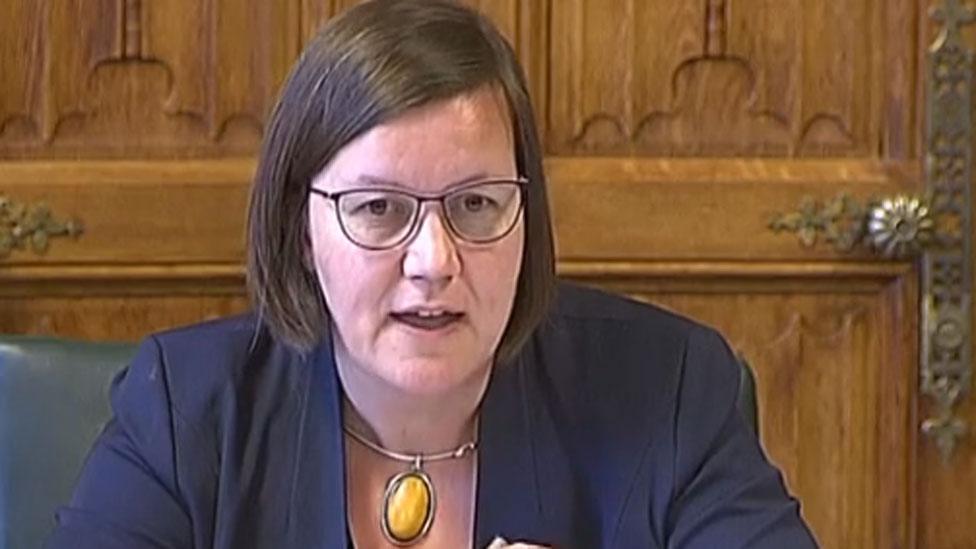
Meg Hillier warned "something has gone pretty badly wrong"
This was rejected by Brendan Brown of the NHS Business Services Authority, who described the process as taking people on a "customer journey".
Meg Hillier, chairwoman of the committee, said it was very rare to have such unanimous levels of concern from MPs about what had been revealed.
The Labour MP said that when so many people were contacting MPs over the fines, it showed "something has gone pretty badly wrong".
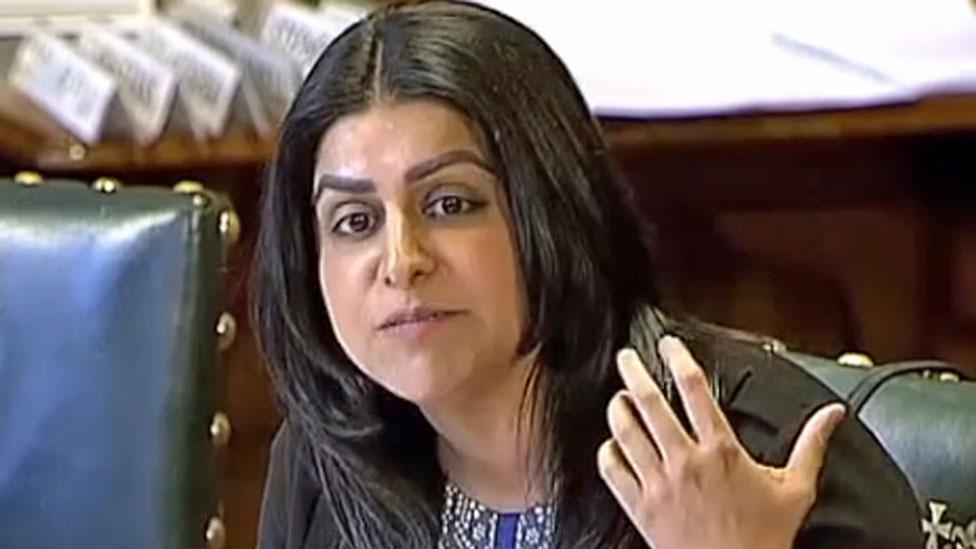
Shabana Mahmood warned of "breathtaking complacency"
Sir Geoffrey Clifton-Brown challenged representatives of the NHS and the Department of Health as to whether the "vastly over-complicated" penalty system was even "fit for purpose".
The Conservative MP said there was a poor financial return from the fines, which involved "chasing some of the poorest people in the land".
He questioned an "easy read" guide to eligibility for free treatment that stretched for 21 pages.
Sir Chris told MPs: "We're not trying to claim that the system is simple."
But Ms Morris said: "My concern is that you're not doing anything about it."
Learning disabilities
Witnesses told MPs about the problems of patients either being unable to understand the rules of eligibility for free treatment or who had falsely been identified as fraudsters.
Dan Scorer, of the mental health charity Mencap, told MPs it was a "real problem" causing a "lot of confusion among people with learning disabilities and their families".
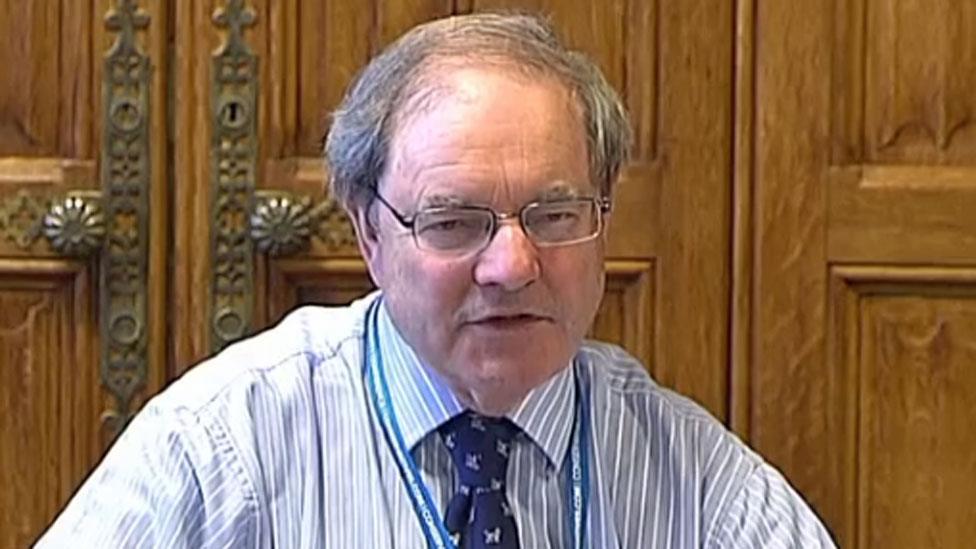
Geoffrey Clifton-Brown asked whether the system was "fit for purpose"
Laura Cockram of Parkinson's UK said that vulnerable patients were left "shocked and anxious" when they received penalty fines.
Sir Geoffrey said in six years serving on the Public Accounts Committee, this has been one of the most critical hearings he had ever attended.
He warned of a fining process which was "scaring large numbers of the most vulnerable in society".
The Cotswolds MP said it was "staggering" that the forms for not paying prescription charges still did not include a box for universal credit.
Deterring fraud
Labour's Shabana Mahmood said the "system is indefensible" - and was not about a political policy choice, but poor public administration".
She warned of "breathtaking complacency and arrogance".
"We have heard of real distress caused to our citizens because of this system," said Ms Mahmood.
The committee heard from the British Dental Association that low-income patients had been deterred from going to the dentist because of fears over fines.
Ms Waite said there had been a fall of 23% in low-income patients attending the dentist.
Labour MP Bridget Phillipson such a big drop should have "set off alarm bells".
"Isn't there a risk that people are just not getting the treatment they need because they're worrying about whether they are going to end up with a fine?" asked Ms Phillipson.
Sir Chris said there was a need for "further progress" but said that "taking a harder line" could be a deterrence for fraud.
He said there would be trials of a "real-time checking system", so that people getting prescriptions could see if they were eligible for free treatment before ticking a box to claim it.
"We don't deny at all that it is a very complicated system and some of our processes can cause people distress," said Sir Chris.
"We think it can be improved."

- Published14 May 2019
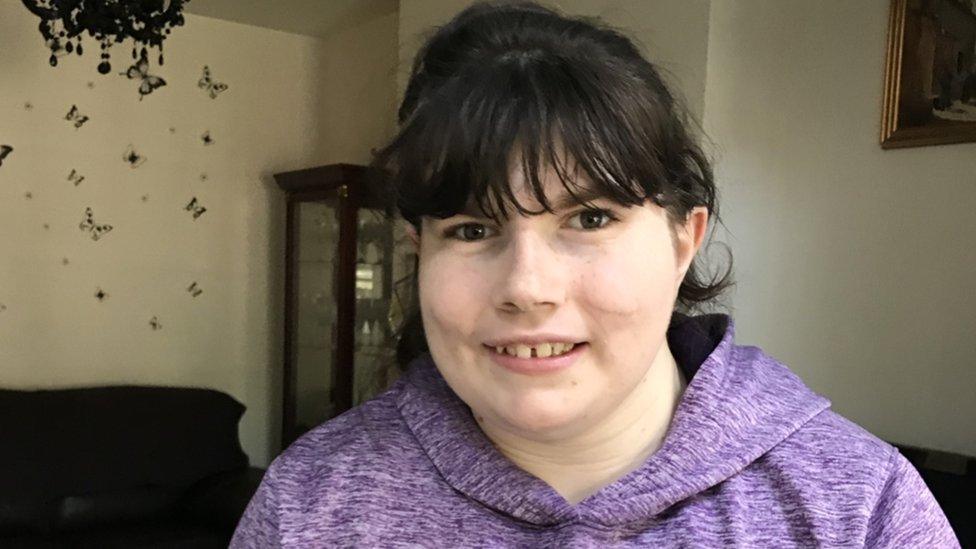
- Published30 August 2018
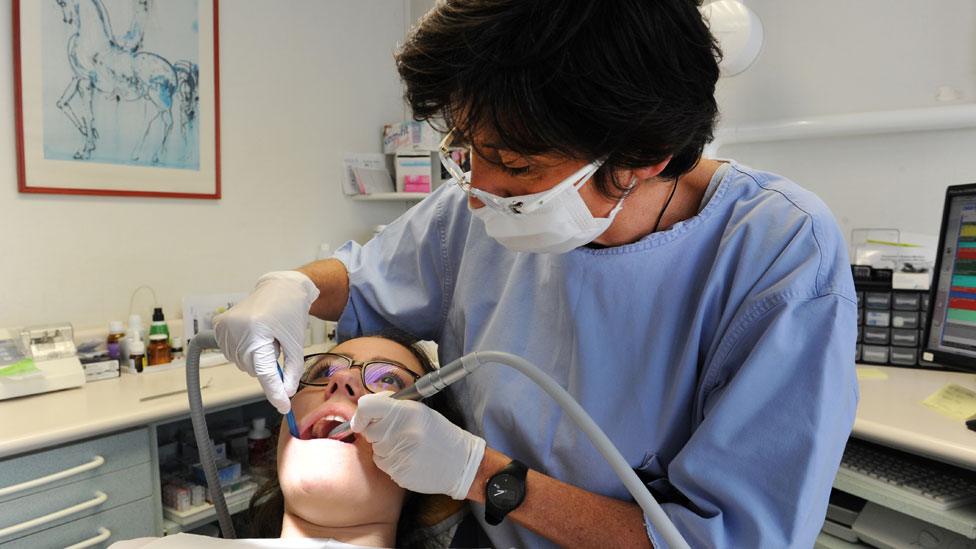
- Published20 October 2017
